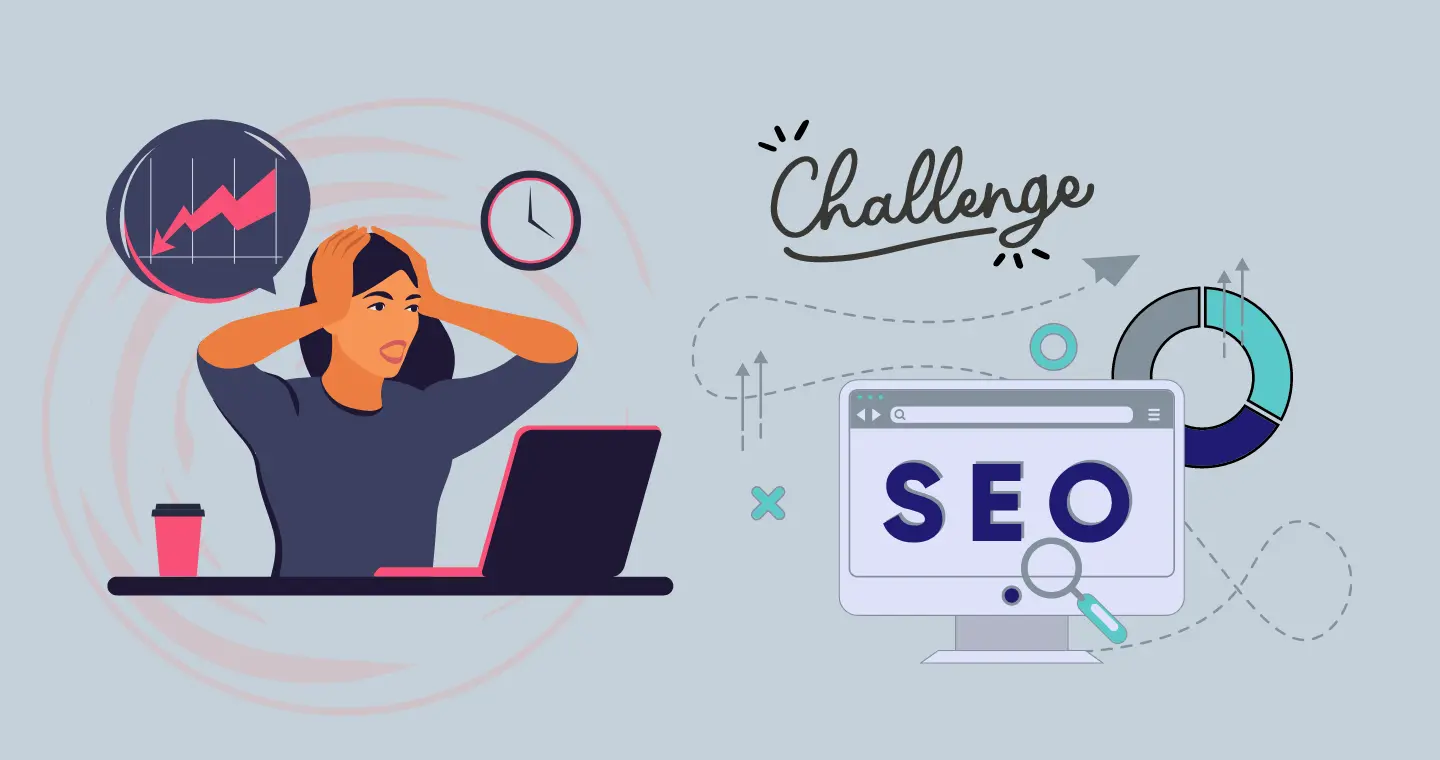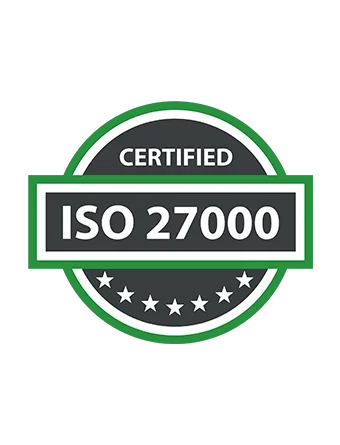Popular Tools by VOCSO
Search engine optimization (SEO) is an essential aspect of any business’s online presence, and it’s no different for small businesses. However, small businesses face unique challenges when it comes to SEO, especially in 2023, where the competition is steeper than ever. In this article, we will discuss the top SEO challenges that small businesses will face in 2023 and how to overcome them.
Did you know that 68% of online experiences begin with a search engine? This means that if your website is not optimized for search engines, you could be missing out on a significant amount of traffic and potential customers. While SEO can be incredibly beneficial for small businesses, it can also be a complex and challenging process. In this article, we will explore the top SEO challenges facing small businesses in 2023 and provide practical tips and strategies to help you overcome them.
Table of Contents
Definition of SEO and its importance for small businesses
Search Engine Optimization (SEO) is the process of optimizing a website to improve its visibility and ranking in search engine results pages (SERPs). The goal of SEO is to drive more organic traffic to a website by increasing its visibility and relevance to search engine users.
For small businesses, SEO can be a powerful tool to increase their online visibility and attract more customers. With the majority of consumers now searching for products and services online, having a strong online presence is essential for small businesses to compete in today’s digital marketplace. Here are some of the reasons why SEO is important for small businesses:
Increased visibility and website traffic: SEO can help small businesses improve their website’s visibility in search engine results pages, making it easier for potential customers to find them. By using relevant keywords and optimizing their website’s content, small businesses can attract more organic traffic to their site.
Improved user experience: By optimizing their website’s structure and content, small businesses can provide a better user experience for their website visitors. This can lead to longer session durations, lower bounce rates, and increased engagement, all of which can help improve their website’s search engine ranking.
Cost-effective marketing: SEO is a cost-effective marketing strategy that can provide long-term benefits for small businesses. Unlike paid advertising, which requires ongoing investment, the effects of SEO can be long-lasting and can continue to drive traffic to a website even after the initial optimization work is done.
Competitive advantage: By investing in SEO, small businesses can gain a competitive advantage over their rivals. A well-optimized website can rank higher in search engine results pages, making it easier for potential customers to find them instead of their competitors.
The top challenges small businesses face in SEO
The world of SEO is constantly changing, and small businesses often find it difficult to keep up with the latest SEO trends and best practices. In 2023, small businesses will face a new set of challenges when it comes to search engine optimization. The following are some
1. Limited Budget
Small businesses often face the challenge of having limited budgets when it comes to search engine optimization (SEO). SEO is a crucial aspect of any online business as it helps to improve visibility, increase traffic, and ultimately generate more revenue. However, with a limited budget, businesses face challenges in various ways and that can stop them to achieve the desired results. Here we’ll find out the various SEO challenges faced by small businesses due to limited budgets and provide practical solutions to overcome them.
A. Keyword Research:
Keyword research is a critical aspect of SEO as it helps to identify the phrases and words that potential customers use when searching for a product or service. However, conducting thorough keyword research requires time and money. Small businesses with limited budgets may not have the resources to invest in paid keyword research tools. However, there are free alternatives such as Google Keyword Planner and Ubersuggest that can be used to conduct basic keyword research.
B. Content Creation:
Content is king when it comes to SEO but producing quality content on a budget is really challenging these days. High-quality content that is relevant, informative, and engaging can help to improve search rankings, increase traffic, and drive conversions. However, creating quality content can be expensive and time-consuming. Small businesses can overcome this challenge by repurposing existing content, collaborating with other businesses or influencers, and leveraging user-generated content.
As working with an SEO agency for a decade, I know the reality of high-quality content. If you’re planning to write informative and authoritative content that follows Google E-A-T, the ways to increase your content authority then you have to spend a lot of time and money.
C. Link Building
Link building is the process of acquiring quality backlinks to a website from other websites. Backlinks are a critical ranking factor in Google’s algorithm. However, acquiring high-quality backlinks can be expensive, especially for small businesses with limited budgets. To overcome this challenge, small businesses can focus on building relationships with other businesses, leveraging social media platforms, and participating in local events and organizations.
You can also produce informative content and infographics so you can get some mentioned by other content creators. Backlinks creation is one of the most important parts of SEO marketing that also build your domain authority which is the key factor of ranking.
D. Technical SEO
Technical SEO refers to the optimization of a website’s backend, including its code, structure, and speed. Technical SEO can be challenging for small businesses with limited budgets, as it often requires the assistance of a developer or SEO specialist. However, there are many free on-page SEO tools available that can help small businesses to identify technical SEO and on-page issues and resolve them.
There are several Technical SEO ranking factors that you have to optimize for your website to get good responses from your users and search bots.
E. Multilingual or Specific Country SEO:
If you’re doing SEO for local businesses then you have to spend very less than international or country-specific, and multilingual SEO. If your target customers are global then you have to think about different pages, language pages, content, keywords competition level, number of keywords, and working team strength. All these depend on your budget and if you have a low budget then you can’t achieve your SEO goals. I would like to recommend going with Local SEO initially because local SEO can be a perfect choice for small businesses.
2. Limited Resources
Small businesses may also face limited resources when it comes to SEO. This can include a lack of time, staff, or technology. This can make it difficult to keep up with the demands of SEO, particularly as the landscape continues to evolve.
Limited resources can create SEO challenges for small businesses. These challenges may include difficulty in creating and executing an effective SEO strategy, as well as competing with larger companies that have more resources available to invest in SEO. Limited resources may also limit the amount of content that a small business can produce, making it difficult to rank high on search engine results pages.
Additionally, small businesses may not have access to the latest tools and technologies that larger companies use to optimize their websites and content for search engines. This can make it more difficult for small businesses to stay up to date with the constantly evolving landscape of SEO.
Solution:
A. Outsource Your SEO
One solution to the issue of limited resources is to outsource your SEO to a third-party provider. This can help you free up time and resources that can be devoted to other areas of your business. Additionally, an SEO provider can often offer expertise and technology that may not be available in-house. By working with an experienced SEO provider, you can ensure that your SEO efforts are in good hands, and can focus on other aspects of your business.
Lack of SEO Expertise
SEO can be a complex and ever-changing field, and many small businesses may not have the expertise to effectively navigate it. This can lead to mistakes and missed opportunities and can limit the impact of your SEO efforts.
Small businesses often struggle with SEO due to limited resources and expertise. They may not have a dedicated SEO team or the budget to hire an SEO expert, leaving the responsibility of SEO to business owners or employees who may not have extensive knowledge of SEO. As a result, small businesses may not be able to keep up with the latest SEO trends, algorithms, and techniques, which can cause their website to fall behind in rankings.
Solution: Educate Yourself or Hire an SEO Expert
One solution to the issue of a lack of SEO expertise is to educate yourself on the basics of SEO. There are many resources available online, including blogs, webinars, and courses that can help you learn the fundamentals of SEO. Alternatively, you can hire an SEO expert to help guide your efforts. This can be particularly useful if you have limited time or resources to devote to learning SEO yourself.
3. Competition
Small businesses often face stiff competition when it comes to SEO. Larger companies may have more resources to devote to their SEO efforts and may have already established themselves in the search rankings.
Solution: Focus on Your Niche
One solution to the issue of competition is to focus on your niche. By honing in on a specific area of expertise or a specific geographic location, you can create a more targeted SEO strategy that may be more effective than a broad-based approach. Additionally, by focusing on your niche, you can become an expert in your area, which can help establish your credibility and authority in the eyes of search engines and potential customers.
4. Keeping Up with Algorithm Updates
Search engine algorithms are constantly evolving, and small businesses may find it difficult to keep up with the latest changes. This can lead to missed opportunities and lost rankings.
Solution: Stay Up to Date
One solution to the issue of keeping up with algorithm updates is to stay up to date on the latest changes. This can be done by following industry news and staying informed about best practices.
Additionally, working with an SEO provider can help ensure that you are always up to date on the latest developments in the SEO world. An experienced provider can help you navigate the changes and adjust your strategy accordingly so that your rankings are not negatively impacted.
5. Using Keywords Incorrectly
Keywords are a crucial component of SEO, but using them incorrectly can actually harm your rankings. Small businesses may find it difficult to strike the right balance between using keywords effectively and avoiding overuse or spamming.
Solution: Focus on User Intent
One solution to the issue of using keywords incorrectly is to focus on user intent. Rather than simply stuffing your content with keywords, focus on creating content that meets the needs of your target audience. By understanding the intent behind users’ search queries, you can create content that is relevant, helpful, and engaging. This can help improve your rankings, as search engines increasingly prioritize content that provides value to users.
6. Writing Compelling Titles and Meta Descriptions
Titles and meta descriptions are critical components of SEO, as they provide users with a preview of what they can expect from your content. However, small businesses may struggle to create titles and descriptions that are both compelling and SEO-friendly.
Solution: Optimize Your Titles and Descriptions
One solution to the issue of writing compelling titles and meta descriptions is to optimize them for SEO. This includes using relevant keywords, keeping your titles and descriptions concise, and ensuring that they accurately reflect the content on your page. Additionally, using action-oriented language and highlighting the benefits of your content can help make your titles and descriptions more compelling to users.
7. Missing the Mark on the Mobile
Mobile optimization is becoming increasingly important in the world of SEO, as more and more users are accessing the internet on their mobile devices. Small businesses may find it difficult to keep up with the demands of mobile optimization, particularly as the landscape continues to evolve.
Solution: Prioritize Mobile Optimization
One solution to the issue of missing the mark on mobile is to prioritize mobile optimization in your SEO strategy. This includes optimizing your website for mobile devices, ensuring that your content is mobile-friendly, and using mobile-specific strategies such as voice search optimization. Additionally, working with an SEO provider can help ensure that your mobile optimization efforts are effective and up to date.
8. Not Ranking Higher in Search Results
Small businesses may struggle to rank high in search results, particularly for competitive keywords. This can limit their visibility and make it difficult to attract new customers.
Solution: Focus on Local SEO
One solution to the issue of not ranking higher in search results is to focus on local SEO. By optimizing your website and content for local keywords and phrases, you can improve your visibility in local search results. Additionally, leveraging local directories and review sites can help establish your credibility and authority in your local market.
9. Core Web Vitals
How Core Web Vitals affect SEO?
Core Web Vitals are now an essential part of Google’s algorithm, and they play a crucial role in determining a website’s ranking. Websites that provide a better user experience, as measured by Core Web Vitals, will rank higher on search engine results pages. This is especially true for mobile devices, where user experience is even more critical. Therefore, optimizing Core Web Vitals is crucial for small businesses to rank higher on Google.
Challenges for small businesses
Small businesses face significant challenges when it comes to optimizing their website for Core Web Vitals. First and foremost, they may lack the resources to invest in website optimization. They may not have the technical expertise required to make the necessary changes to their website. Additionally, they may not have access to the latest tools and technologies that can help improve Core Web Vitals.
How to overcome the challenges?
There are several ways small businesses can overcome the challenges of optimizing their website for Core Web Vitals. First, they can hire an experienced SEO agency that can help them with website optimization. Second, they can use online tools and resources that can guide them through the optimization process. Finally, they can invest in the latest technologies that can improve Core Web Vitals, such as using a content delivery network (CDN) or upgrading to a better web hosting service.
Core Web Vitals are an essential part of SEO, and small businesses need to pay attention to them if they want to rank higher on Google. While it may be challenging for small businesses to optimize their website for Core Web Vitals, there are ways to overcome these challenges. By investing in website optimization, using online resources, and leveraging the latest technologies, small businesses can improve their website’s Core Web Vitals and rank higher on search engine results pages.
10. Using Analytics & Search Console Data
As a small business owner, you may have heard of the terms “analytics” and “search console” but may not fully understand how they can impact your website’s SEO. In this article, we’ll explore how using analytics and search console data can be an SEO challenge for a small business, and provide some tips on how to overcome these challenges.
Understanding Analytics Data
Analytics data refers to the information collected about your website’s traffic and user behavior. This data can include the number of visitors to your site, where they are coming from, how long they stay on your site, and which pages they visit. Analytics data can be extremely valuable for improving your website’s SEO, but it can also be overwhelming for small business owners who may not have a lot of experience with data analysis.
One of the biggest challenges of using analytics data for SEO is knowing which metrics to focus on. Some common metrics that can be useful for SEO include bounce rate, time on page, and conversion rate. Bounce rate refers to the percentage of visitors who leave your site after only viewing one page. A high bounce rate can indicate that your website is not providing visitors with the information they are looking for. Time on the page refers to the amount of time that visitors spend on a particular page. If visitors are spending very little time on a page, it may indicate that the content is not engaging or relevant. Conversion rate refers to the percentage of visitors who take a desired action on your website, such as making a purchase or filling out a contact form.
In addition to knowing which metrics to focus on, small business owners may also struggle with analyzing the data itself. There are many different analytics tools available, each with its own interface and reporting features. It can take time and effort to learn how to use these tools effectively, and many small business owners may not have the resources to dedicate to this task.
Understanding Search Console Data
Search console data refers to the information collected about how your website is performing in search engine results pages (SERPs). This data can include the number of impressions your site receives, the number of clicks, and the average position of your site in search results. Search console data can be extremely valuable for identifying opportunities to improve your website’s SEO, but it can also be challenging for small business owners who may not be familiar with the technical aspects of SEO.
One of the biggest challenges of using search console data for SEO is understanding how search engines evaluate your website. Search engines use complex algorithms to determine which websites to display in search results, and these algorithms are constantly changing. Small business owners may not have the time or resources to keep up with these changes, making it difficult to optimize their websites for search.
Another challenge of using search console data for SEO is identifying which keywords to target. Keywords are the phrases that users type into search engines to find information. By targeting the right keywords, you can increase the chances that your website will appear in search results when users search for those terms. However, identifying the right keywords can be a complex process that involves analyzing search volume, competition, and relevance.
Overcoming Analytics and Search Console Challenges
While using analytics and search console data for SEO can be challenging, there are several strategies that small business owners can use to overcome these challenges. One strategy is to focus on the metrics that are most important for your business goals. For example, if your goal is to increase sales, you may want to focus on metrics like conversion rate and average order value. If your goal is to increase brand awareness, you may want to focus on metrics like social media engagement and website traffic.
Despite the challenges, small businesses can still use analytics and search console data to improve their SEO. Here are some strategies to overcome the challenges:
Set Goals: Setting specific and measurable goals can help small businesses focus on the data that is most relevant to their business. For example, a small business may want to increase website traffic by 10% in the next six months. This goal can guide the data analysis and help small businesses prioritize their efforts.
Simplify Data: Small businesses can simplify data by focusing on the most critical metrics, such as bounce rate, page views, and time on site. These metrics can provide insights into user behavior and can help small businesses identify areas for improvement.
Use Automated Tools: Small businesses can use automated tools to analyze data and provide insights. For example, Google Analytics has automated reports that can provide valuable insights into website traffic and user behavior.
Seek Help: Small businesses can seek help from SEO experts to analyze data and implement changes. SEO experts can provide guidance on what data to focus on and how to use the data to improve SEO.
11. Internal Redirects
Internal redirects are an essential aspect of search engine optimization (SEO) and a crucial element in enhancing the user experience of your website visitors. While they can provide numerous benefits to your website, internal redirects can also be a challenging task for small businesses to optimize their SEO ranking.
As a small business owner, you must know that every single aspect of your website affects its ranking. Internal redirects can either boost or hurt your website’s SEO ranking. In this article, we will explain how internal redirects can be challenging for small businesses and provide you with tips to overcome these challenges.
Why Internal Redirects are Challenging for Small Businesses?
Internal redirects are necessary when you update or remove a page on your website or change its URL. When you create an internal redirect, it sends the visitors and search engines from the old page or URL to the new one. It ensures that the visitors reach the content they want, and the search engines do not index any broken links. However, creating internal redirects can be challenging for small businesses due to the following reasons:
A. Limited Technical Knowledge
Most small businesses do not have dedicated technical personnel or IT departments. As a result, they may not have the required technical knowledge to create internal redirects or make changes to their website’s backend. This lack of knowledge can lead to errors while creating redirects, resulting in broken links and negative impacts on SEO ranking.
B. Inconsistent Redirects
Inconsistent redirects can lead to significant problems for small businesses. For example, if you update a URL or remove a page and forget to create an internal redirect, it can result in a 404 error page. A high number of 404 errors on your website can have a severe impact on your SEO ranking. Moreover, inconsistent redirects can also cause duplicate content issues, which can hurt your website’s ranking.
C. Too Many Redirects
Redirect chains and loops can also hurt your website’s SEO ranking. A redirect chain occurs when you create multiple redirects from one URL to another. A redirect loop occurs when two URLs redirect to each other. Both of these scenarios can confuse search engines and hurt your website’s ranking.
Tips to Overcome Internal Redirects Challenges
To overcome the internal redirect challenges for small businesses, you can follow these tips:
A. Plan Your Redirects
Before creating any redirects, plan and map out the redirects on a spreadsheet or document. Include the old URLs, the new URLs, and the type of redirect you will use. This planning will help you avoid inconsistencies and redirect chains.
B. Use Proper Redirect Types
There are three types of redirects: 301, 302, and 307. Use the 301 redirect for permanent changes, and the 302 and 307 redirects for temporary changes. Using the correct redirect type ensures that the search engines understand the intent behind the redirect and pass on the link equity.
C. Monitor and Test Your Redirects
Monitor and test your redirects regularly to ensure they work correctly. Use online tools to check for 404 errors, redirect loops, and redirect chains. Fix any errors or inconsistencies immediately to avoid negative impacts on your SEO ranking.
D. Create Custom 404 Pages
Create custom 404 pages for your website to improve the user experience. A custom 404 page informs the visitors that the page they are looking for is not available and provides them with links to other relevant pages on your website. A custom 404 page can reduce bounce rates and improve the user experience, which can positively impact your SEO ranking.
Internal redirects can be challenging for small businesses to optimize their SEO ranking. However, by following the tips mentioned above, small businesses can overcome these challenges and ensure that their internal redirects provide value to their visitors and positively impact their SEO ranking.
12. AI-Generated Content
For a few years or months, artificial intelligence (AI) is playing an increasingly important role in content creation. With the rise of AI-generated content, small businesses face a new challenge when it comes to SEO ranking. While AI-generated content can be an effective way to create content quickly and efficiently, it can also present significant challenges when it comes to optimizing for search engines. In this article, we will explore some of the ways AI-generated content can be challenging in SEO ranking for small businesses and offer some tips to help overcome these challenges.
A. Understanding AI-Generated Content
AI-generated content is content that is created using machine learning algorithms. These algorithms are designed to analyze large amounts of data and use this data to generate new content. AI-generated content can take many forms, from simple blog posts to complex news articles. While AI-generated content can be an effective way to create content quickly, it is important to understand that this content is often of lower quality than content created by human writers. This is because the algorithms used to create AI-generated content are not yet sophisticated enough to replicate the creativity and nuance of human writing.
B. Challenges in SEO Ranking for Small Businesses
One of the biggest challenges small businesses face when it comes to SEO ranking is the need to create high-quality content that is optimized for search engines. AI-generated content can be challenging in this regard, as it is often of lower quality than content created by human writers. This can make it difficult to achieve high search engine rankings, as search engines prioritize high-quality content that provides value to users.
Another challenge small businesses face when it comes to SEO ranking is the need to create unique and engaging content. While AI-generated content can be effective at producing large volumes of content quickly, it is often generic and lacks the personality and voice of human-written content. This can make it difficult for small businesses to stand out from the crowd and attract visitors to their websites.
Tips to Overcome These Challenges
Despite the challenges presented by AI-generated content, there are some steps small businesses can take to overcome these challenges and improve their SEO ranking. The first step is to focus on creating high-quality content that provides value to users. This means taking the time to research topics, conduct interviews, and write engaging, well-researched content that is optimized for search engines.
Another tip is to use AI-generated content as a supplement to human-written content. While AI-generated content can effectively produce large volumes of content quickly, it should not be relied on exclusively. Small businesses should focus on creating high-quality, engaging content that is written by humans, and use AI-generated content to supplement this content as needed.
In addition to these tips, small businesses should also focus on building a strong online presence through social media and other digital marketing channels. By promoting their content through social media and other channels, small businesses can increase their visibility online and attract more visitors to their websites.
13. Duplicate Content
When it comes to SEO, one of the biggest challenges that small businesses face is duplicate content. Duplicate content refers to content that appears in more than one location on the internet. It can be an exact replica of content on a website, or it can be similar content that appears on multiple sites. Duplicate content can have a significant impact on a website’s search engine rankings, and it can be particularly challenging for small businesses.
Duplicate content can harm SEO efforts in many ways. Firstly, it can confuse search engines, making it difficult for them to determine which version of the content is the original. As a result, the search engine may not index the page or may not rank it as high as it should. Additionally, when search engines detect duplicate content, they may penalize the site, causing it to drop in search engine rankings.
For small businesses that rely on search engine traffic to drive sales, duplicate content can be a significant problem. Without a high search engine ranking, it can be difficult to attract new customers and generate sales. This is particularly true for businesses that operate in highly competitive industries, where every ranking position counts.
Fortunately, there are ways to avoid duplicate content issues and improve search engine rankings for small businesses. One of the most effective methods is to create unique, high-quality content that is relevant to the target audience. By creating original content that provides value to users, small businesses can establish themselves as authorities in their industry and improve their search engine rankings.
Another approach to avoiding duplicate content is to use canonical tags. Canonical tags tell search engines which version of a page is the original, and which versions are duplicates. This helps to avoid confusion and ensures that search engines index the correct version of the content.
Solution: Audit Your Content and Use Canonical Tags
One solution to the issue of duplicate content is to audit your content regularly and use canonical tags to indicate the preferred version of a page. Additionally, using tools such as Copyscape can help you identify instances of duplicate content and take steps to address them.
14.. The Analysis Challenge
SEO can be a complex and data-driven process, and small businesses may struggle to analyze their results effectively. This can make it difficult to identify opportunities for improvement and make data-driven decisions. Due to a lack of expertise small businesses are not able to analyze data from Google Analytics, Search Console, and other SEO tools that can help them optimize the pages of their website and understand user behavior.
Solution: Focus on the Metrics That Matter
One solution to the issue of analysis challenge is to focus on the metrics that matter. Rather than getting bogged down in complex data analysis, small businesses can focus on a few key metrics such as organic traffic, conversion rates, and bounce rates. This can help simplify the analysis process and make it easier to identify opportunities for improvement.
15. The Challenge of Keeping Up with SEO Changes
SEO is constantly evolving, with new algorithms, tools, and best practices emerging all the time. Small businesses may struggle to keep up with these changes, particularly if they have limited resources and expertise.
Solution: Stay Educated and Work with an SEO Provider
One solution to keeping up with SEO changes is to stay educated and work with an experienced SEO provider. By keeping up to date with the latest developments in SEO and leveraging the expertise of an SEO provider, small businesses can stay ahead of the curve and continue to improve their search rankings.
In summary, small businesses will face a range of SEO challenges in 2023, from limited budgets and resources to keeping up with algorithm updates and optimizing for mobile and Core Web Vitals. However, by using data effectively, managing internal redirects, using AI-generated content strategically, auditing for duplicate content, focusing on key metrics, staying educated, and working with an experienced provider,
Conclusion
Recap of the top SEO challenges for small businesses
The top SEO challenges for small businesses in 2023 include limited budget, limited resources, lack of SEO expertise, competition, keeping up with algorithm updates, using keywords incorrectly, writing compelling titles and meta descriptions, missing the mark on mobile, not ranking higher in search results, and Core Web Vitals.
Importance of addressing these challenges to improve SEO and overall business success
Addressing the challenges of limited budget and resources can help small businesses develop a comprehensive SEO strategy without overspending. By prioritizing and investing in the right tactics, small businesses can make the most of their limited resources and improve their online visibility. Addressing the challenge of a lack of SEO experts can help small businesses avoid costly mistakes and ensure that they are implementing the latest best practices. This can save time and resources while providing better results.
By addressing the challenges of competition and keeping up with algorithm updates, small businesses can stay ahead of the curve and maintain their online visibility. This involves regularly analyzing competitors and staying informed on the latest SEO trends and algorithm updates.
Addressing the challenges of using keywords incorrectly, writing compelling titles and meta descriptions, missing the mark on mobile, not ranking higher in search results, and Core Web Vitals can help small businesses ensure that their website is optimized for search engines and offers a seamless user experience for their customers. By focusing on these important factors, small businesses can increase their online visibility, attract more traffic, and ultimately drive more leads and sales.
Overall, addressing the top SEO challenges for small businesses is essential for improving their online visibility, attracting new customers, and ultimately driving business success.


















